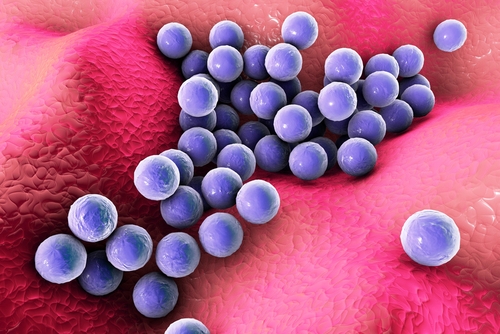 We can now add Staph infections to the list of things that we inherit from our parents.
We can now add Staph infections to the list of things that we inherit from our parents.
A new study in the Annals of Internal Medicine asks — do our genes influence whether or not we get a Staph infection? And, it looks like they do.
The group that conducted the study were in just the right place to do their research— Denmark. If there is one thing that the Danish do well, it's record keeping. The group used a database of almost every person born in Denmark and compared it with the Danish Staphylococcal Bacteremia Database. The question: Does being related affect the likelihood of getting a Staph infection?
The dataset consisted of 34,774 Danish people who had a first-degree relative (parent, child or sibling) who had been hospitalized with a S. aureus infection. These patients were then compared to the general population. Using a statistical analysis tool called an SIR (Standard Incidence Ratio) model, the frequency of S. aureus infections between family members was compared to that of the general public.
The findings were pretty clear. People with a first-degree relative who have had a Staph infection were much more likely — and if a sibling, twice as likely — to become infected than the general population.
But, why?
The answer lies in understanding that we exist in a constant, changing state with the bacteria that are both within and on our bodies. This is more commonly referred to as a host-pathogen relationship. Roughly 33 percent of the population is colonized with S. aureus at any given time. But, this does not mean that a third of us are sick with Staph. It means that we have the bacteria on our bodies somewhere (most often on our skin or in our noses).
Whether or not those bacteria will eventually lead to an infection involves many factors, which will not be discussed here. The take-home message from this study is that some of us are more prone to be infected by Staph based on our genetics, although the genes that may be allowing the infection are not specified in the paper.
This is still a very black box.



